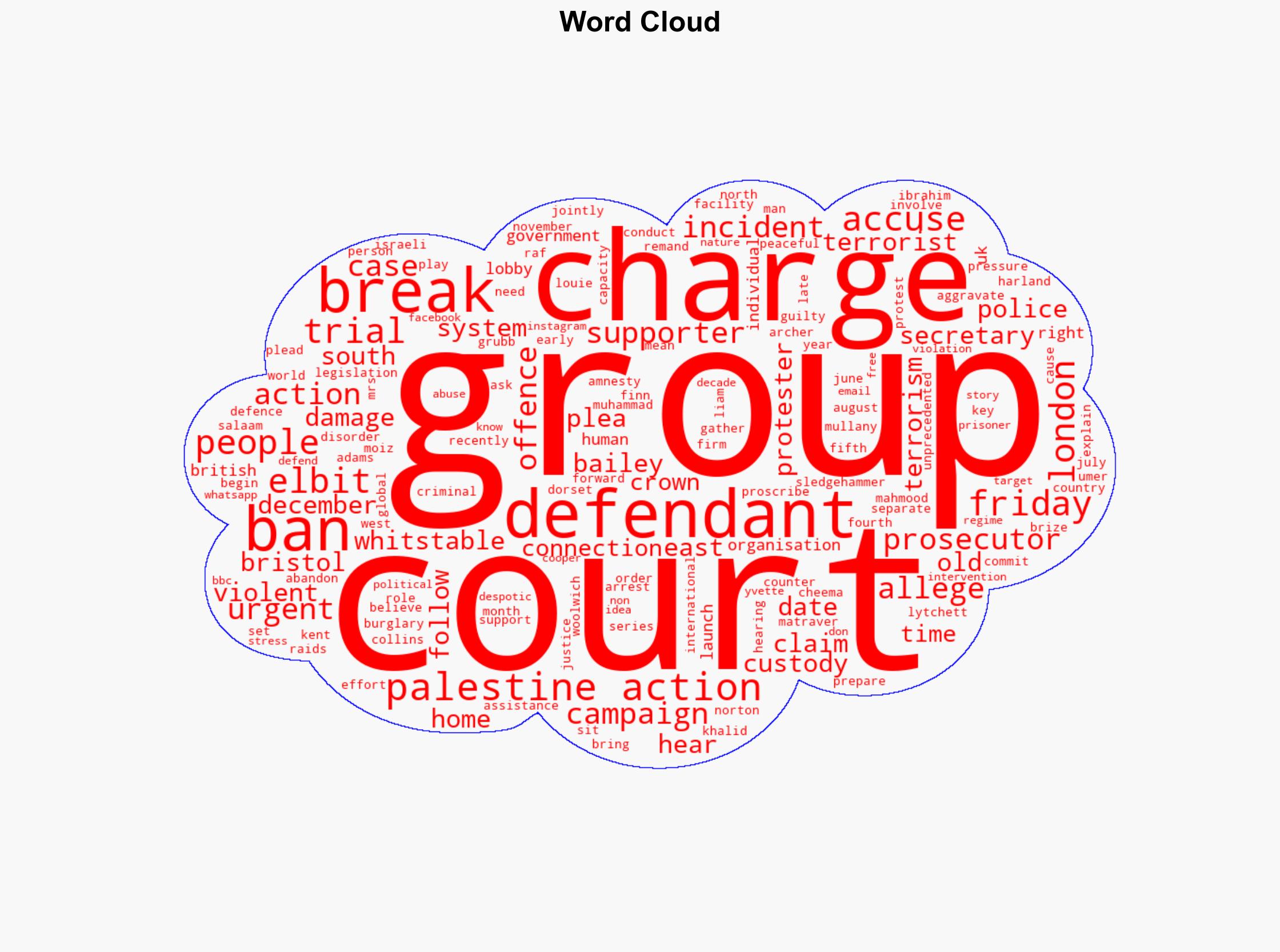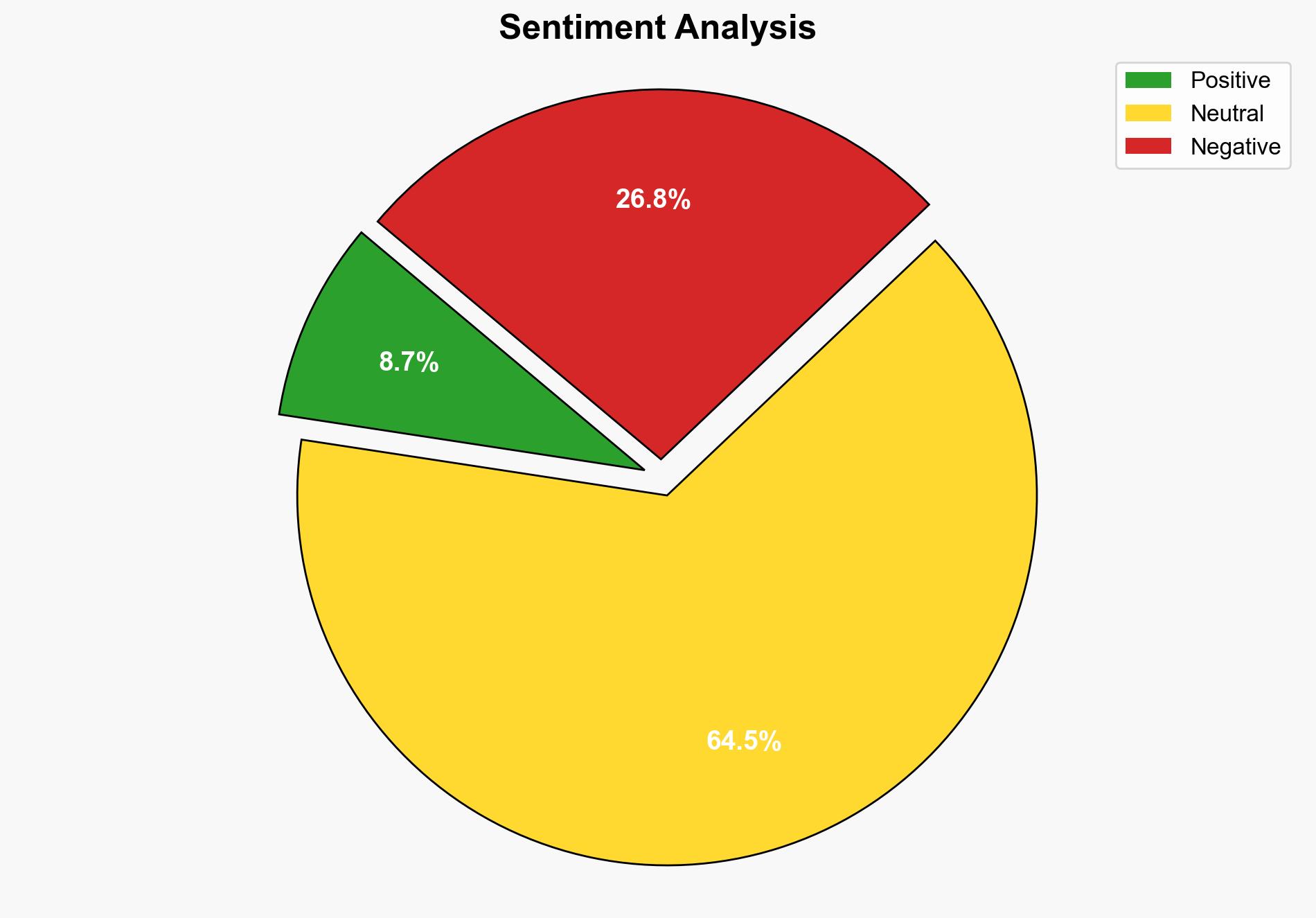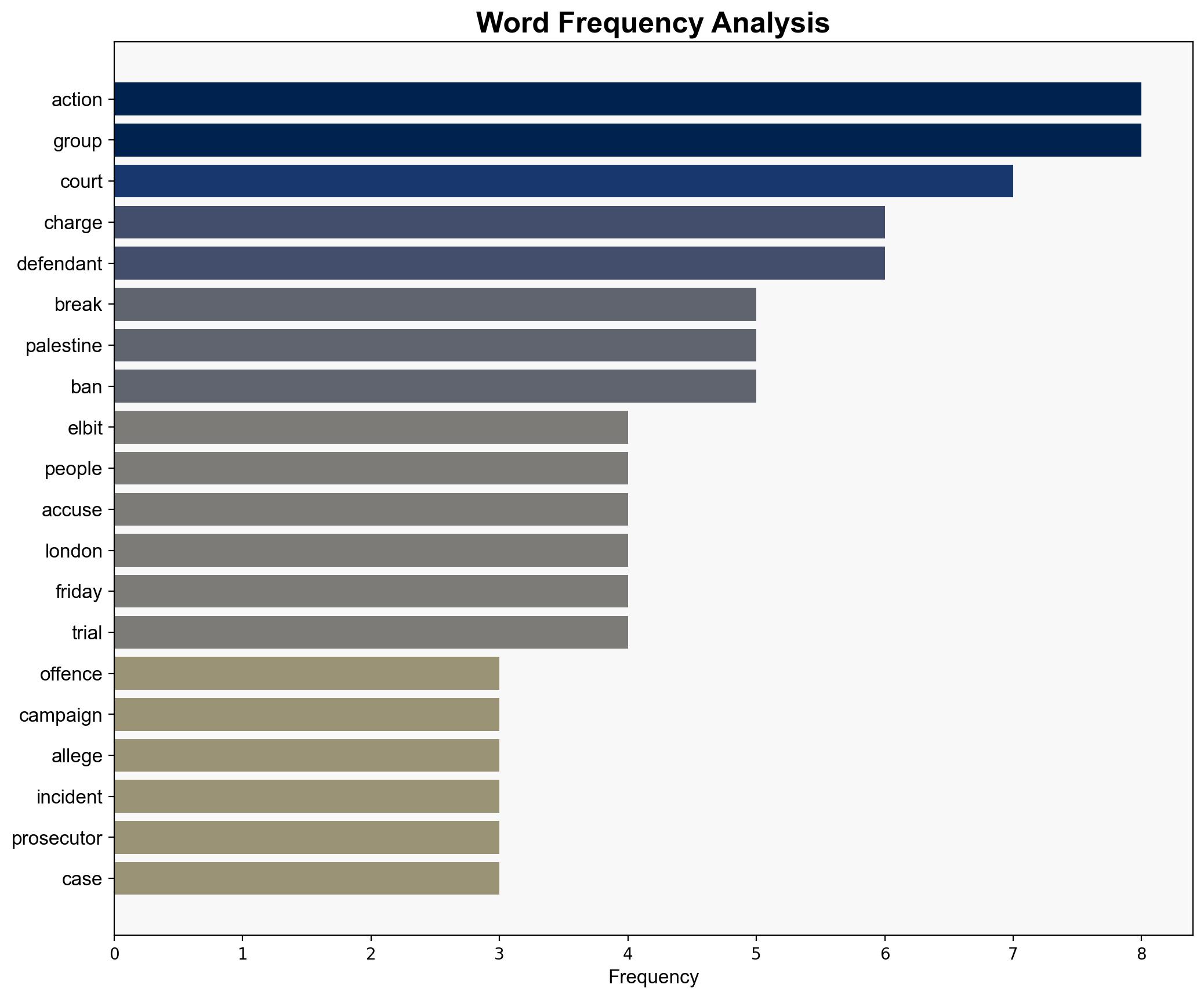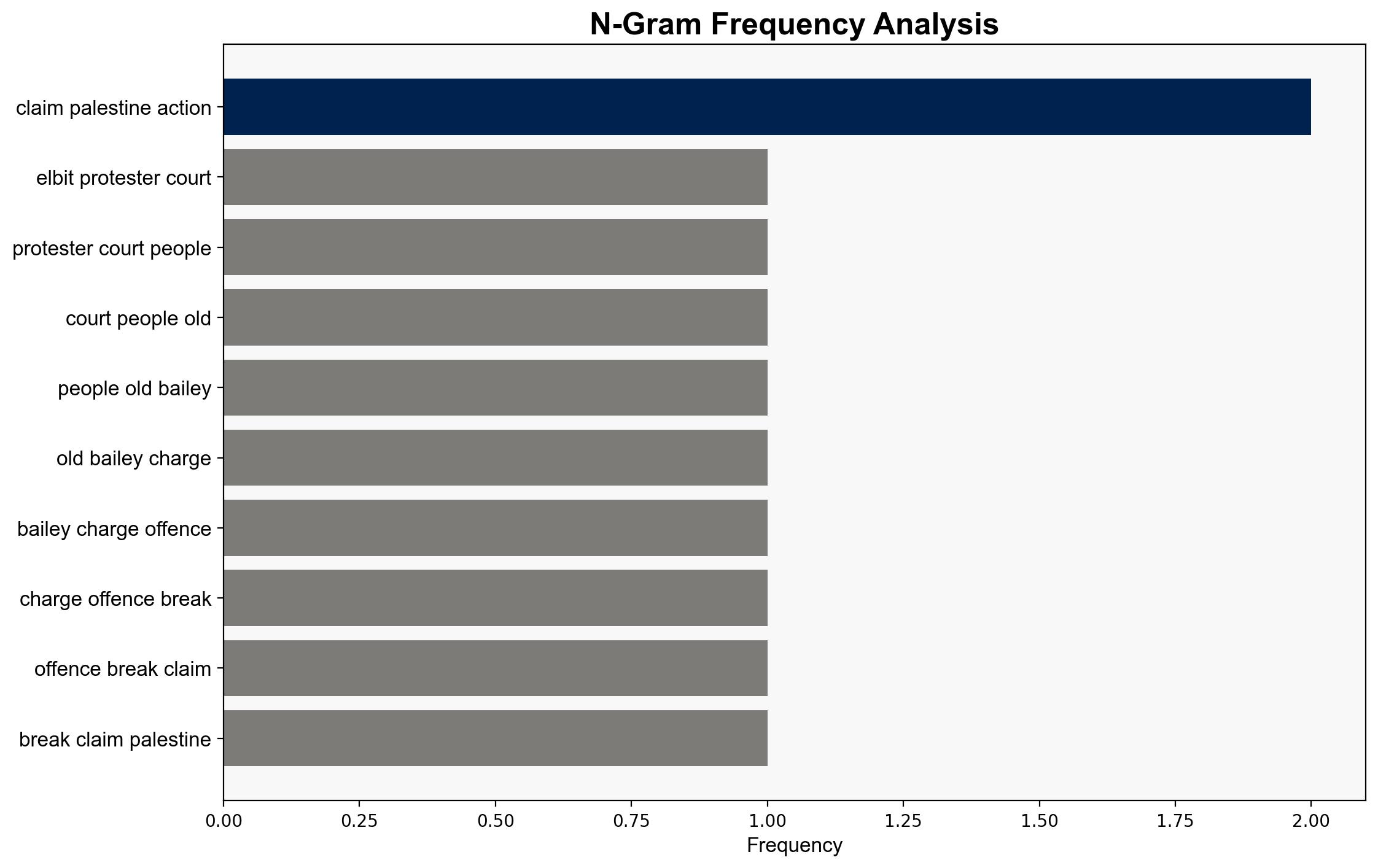Six more people in court over alleged Palestine Action break-in at Israeli defence firm – BBC News
Published on: 2025-08-22
Intelligence Report: Six more people in court over alleged Palestine Action break-in at Israeli defence firm – BBC News
1. BLUF (Bottom Line Up Front)
The most supported hypothesis is that the actions of Palestine Action are primarily motivated by ideological opposition to Israeli defense activities, rather than being part of a coordinated terrorist campaign. Confidence level: Moderate. Recommended action includes increased monitoring of protest activities and reassessment of the legal classification of Palestine Action to ensure alignment with international human rights standards.
2. Competing Hypotheses
1. **Hypothesis A**: The break-in at the Israeli defense firm by Palestine Action is a targeted protest against Israeli military activities, driven by ideological opposition and human rights advocacy.
2. **Hypothesis B**: The actions of Palestine Action are part of a broader, organized campaign with potential terrorist connections, as suggested by the recent proscription under terrorism legislation.
Using ACH 2.0, Hypothesis A is better supported by the involvement of Amnesty International and the group’s history of non-violent protests. Hypothesis B is less supported due to the lack of direct evidence linking the group to terrorist activities beyond the legal classification.
3. Key Assumptions and Red Flags
– **Assumptions**: Hypothesis A assumes that all actions by Palestine Action are ideologically driven and non-violent. Hypothesis B assumes that the legal classification as a terrorist organization is based on substantial evidence of threat.
– **Red Flags**: The proscription of Palestine Action as a terrorist organization may indicate a potential overreach or misinterpretation of the group’s activities. The absence of detailed evidence supporting terrorist connections raises questions about the classification.
4. Implications and Strategic Risks
The legal classification of Palestine Action as a terrorist organization could escalate tensions and potentially radicalize members or sympathizers. This may lead to increased protests or international scrutiny of UK counter-terrorism policies. Economically, there could be implications for UK-Israel relations and defense contracts. Psychologically, the classification may deter legitimate protest activities, impacting civil liberties.
5. Recommendations and Outlook
- Conduct a thorough review of the evidence supporting the terrorist classification of Palestine Action to ensure it aligns with international standards.
- Enhance intelligence-sharing with international human rights organizations to monitor and assess the group’s activities.
- Scenario-based projections:
- Best: De-escalation of tensions through dialogue and reassessment of legal actions.
- Worst: Increased radicalization and international condemnation of UK policies.
- Most Likely: Continued protests with heightened security measures and legal challenges.
6. Key Individuals and Entities
– Louie Adams
– Harland Archer
– Finn Collins
– Moiz Ibrahim
– Salaam Mahmood
– Liam Mullany
– Muhammad Umer Khalid
7. Thematic Tags
national security threats, counter-terrorism, regional focus, human rights advocacy




